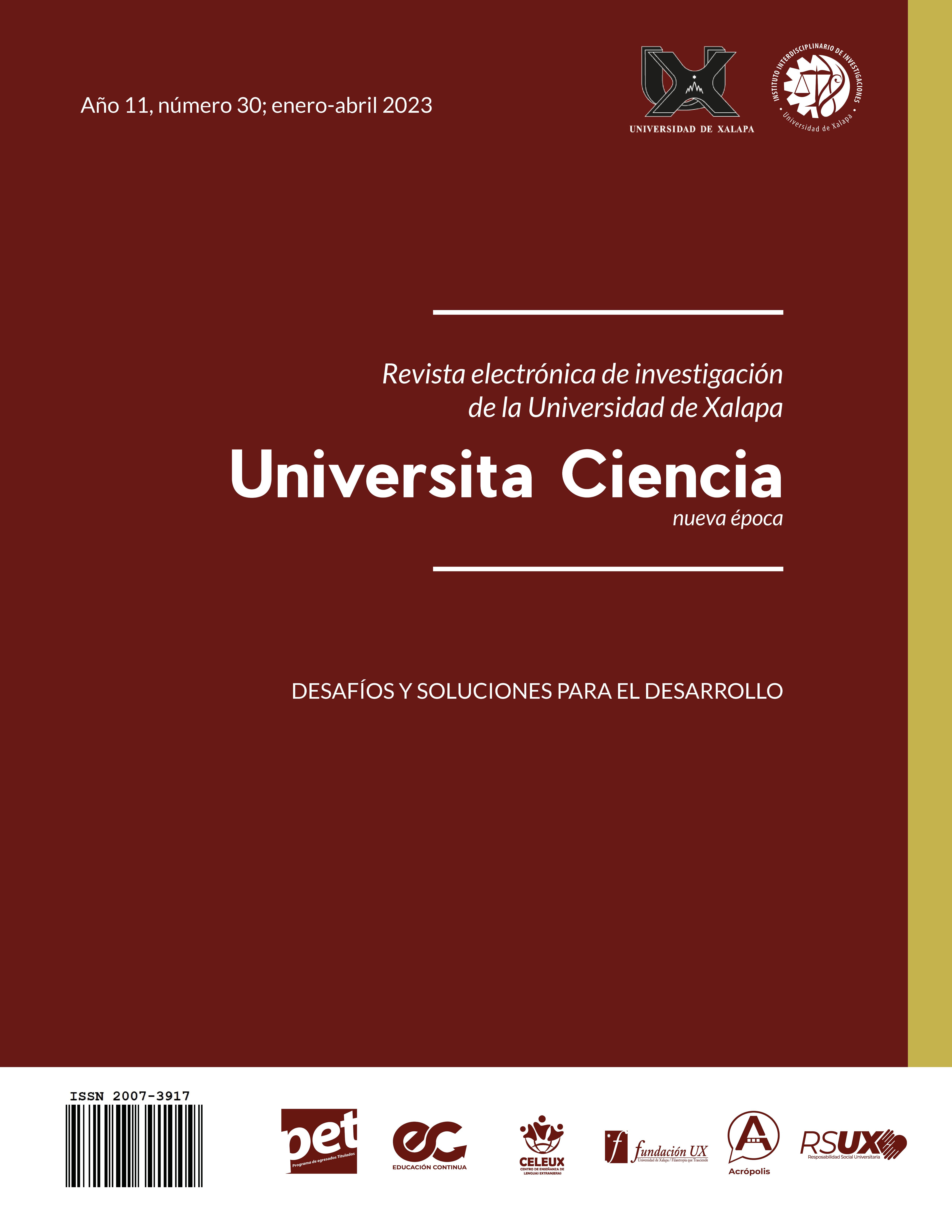Inclusive and Sustainable Higher Education in Mexico: the Construction of Hope for a Better Tomorrow
DOI:
https://doi.org/10.5281/zenodo.7843334Keywords:
higher education, development, 2030 agenda, sustainability, human rights, inclusionAbstract
The human right to higher education represents a public and social good of nations, one of the main objectives of the
2030 SDG Agenda is the responsibility of the State to contribute strategically to the education sector in a broad spectrum, in one of its goals it aims for young people and adults to have equal access to superior and quality, training this implies setting short, medium and long goals term, through a synergy of institutions, public and private organizations and civil society. The vertiginous changes that occur in the economic, political, social, ideological and environmental sectors at a global level lead to propose actions aimed at achieving a resilient and inclusive education as a means to achieve a better quality of life. If we add to this that to achieve 70% of the objectives projected in the 2030 Agenda, education is the fundamental axis, since it substantially affects access to better sources of employment, sustainable development and achieving symmetry of the population to reduce inequalities. It is a duty of the State to increase the enrollment of young people and adult in vulnerable situations, people with disabilities and indigenous groups to guarantee access to higher education institutions whose pillars support innovative education, a guarantee of human rights and an incentive for a culture of peace.
Metrics
References
Acción, D. d. (21 de Mayo de 2015). UNESCO. Obtenido de https://unesdoc.unesco.org/ark:/48223/pf0000245656_spa
Albert Gómez, M. (2000). Derechos Humanos y Educación. Madrid, España: Fernández Ciudad S.L.
Caribe, D. d. (2018). Córdoba, Argentina. Constitución Política de los Estados Unidos Mexicanos. (1917). México, México. Recuperado el 16 de octubre de 2022, de https://www.diputados.gob.mx/LeyesBiblio/pdf/CPEUM.
Declaración Universal de los Derechos Humanos. (s.f.). Obtenido de Naciones Unidas: https://www.ohchr.org/en/human-rights/universal-declaration/translations/spanishpdf
Garcia, G. (2012). El Derecho a la Educación incluida la superior o ibiversitaria y sus obstáculos, incluido el Plan Bolonia”. Revista Crítica de Ciencias Sociales y Jurídicas.
LEY GENERAL DE EDUCACIÓN , S. (2021). México: Cámara de Diputados. Obtenido de: https://www.diputados.gob.mx/LeyesBiblio/pdf/LGES_20042.pdf
OCDE. (2019). Higuer Education in México: Labour Market Relevance and Outcomes, Higher Education. Paris: OECD. Obtenido de https://doi.org/10.1787/9789264309432
Pacto Internacional de los Derechos Económicos, , S. (s.f.). United Nations High Commissioner. Recuperado el16 de octubre de 2022, de https://www.ohchr.org/en/instrumentsmechanisms/instruments/international-covenant-economicsocial-and cultural-rights
Patiño Salceda, J. (2018). El acceso a la educación Superior como un derecho humano: comparación entre México y Argentina.
Quintero Jaramillo, C. (2009). El derecho humano a la educación y el servicio público de educación superior en México. En D. R. Cienfuegos Salgado, Actualidad de los servicios públicos en México (pág. 287). México, México: Instituto de Investigaciones jurídicas UNAM. Recuperado el 30 de Octubre de 2022.
Ramírez García y Pallares Yabur, H. (2018). Derechos Humanos. México:Oxford.
Ramirez García, H., & Pallares Yabur , P.(2018). Derechos Humanos. México:Oxford.
Ramirez, G. (2007). Avances y Retroceso de la Educación en Derechos Humanos ante la Globalización y los DH emergentes. En I. d. Jurídicas (Ed.). UNAM.
UNESCO. (2010-2013). La lente de la educación para el desarrollo sostenible: una herramienta para examinar las políticas y la práctica.
UNESCO. (2020). Educación para el Desarrollo Sostenible: hoja de ruta. Paris, Francia. Recuperado el 2022, de UNESCO Biblioteca Digital: https://unesdoc.unesco.org/ark:/48223/pf0000374896
UNESCO. (2020). La inclusión en la educación. Recuperado el 18 de 10 de 2022, de https://www.unesco.org/es/education/inclusion
UNESCO. Recuperado el 17 de 10 de 2022, de https://unesdoc.unesco.org/ark:/48223/pf0000190898_spa#
Published
How to Cite
Issue
Section
License

This work is licensed under a Creative Commons Attribution-NonCommercial-ShareAlike 4.0 International License.
This journal adheres to the Creative Commons license in the definition of its policy of open access and reuse of published material, in the following terms:
- Accessibility to articles and other publications in whole or in part under the concept of copying, distribution, public communication , interactive access (through the Internet or other means), explicitly maintaining the recognition of the author or authors and the journal itself (authorship acknowledgment).
- Warning that if the articles are remixed, modified or fragments used in other creations, the modified material cannot be distributed, nor is it allowed to reconstruct versions from the original published articles (derived works).
- The use of the contents of the published articles, in whole or in part, for profit (non-commercial recognition) is prohibited.
The author retains copyright, transfers or grants exclusive commercial rights to the publisher, and a non-commercial license is used.














